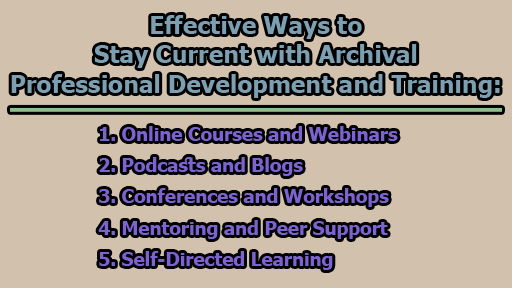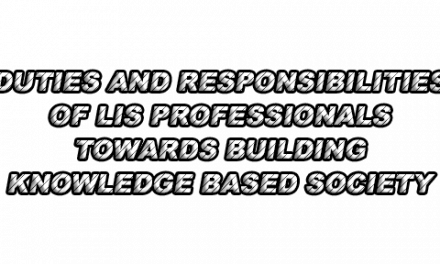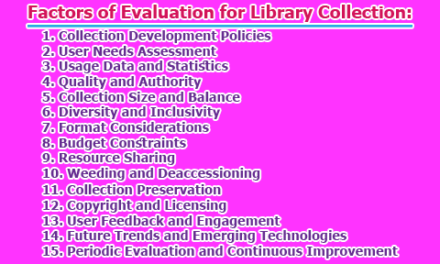Effective Ways to Stay Current with Archival Professional Development and Training:
Archivists play a crucial role in preserving our cultural heritage and ensuring that valuable historical records are accessible to future generations. However, in a fast-changing and diverse profession, it’s imperative for archivists to stay current with the latest trends, standards, and best practices. But how can archivists find the time and resources to do so? In this article, we will explore some of the most effective ways to stay current with archival professional development and training and how they can benefit both your career and your institution.
1. Online Courses and Webinars: One of the most accessible ways to acquire new skills and knowledge is through online courses and webinars. Various options are available, from free or low-cost offerings by professional associations like the Society of American Archivists (SAA) and the Association of Canadian Archivists (ACA) to accredited programs offered by universities and colleges. For example, the Digital Archives Specialist (DAS) Certificate by SAA and the Archives and Records Management Certificate by the University of Toronto provide comprehensive training. These courses allow archivists to learn at their own pace, from anywhere, and often offer opportunities for interaction and feedback from instructors and peers.
2. Podcasts and Blogs: Podcasts and blogs can be an excellent source of information, inspiration, and insight. They often feature interviews, stories, and opinions from experts, practitioners, and users of archives. Some noteworthy options include “Archives in Context” by SAA, “An Archivist’s Tale” by Geof Huth and Karen Trivette, “On Archivy” by Pia Russell, and “The Lone Arranger” by SAA’s Lone Arrangers Section. Listening to podcasts and reading blogs can help archivists stay updated on the latest developments and trends in the field.
3. Conferences and Workshops: Attending conferences and workshops, whether in person or virtually, is another effective way to stay current in archival professional development and training. These events provide valuable opportunities to network, exchange ideas, and learn from the experiences of other archivists. They also expose participants to the latest research, innovations, and challenges in the field. Prominent conferences and workshops include the Annual Meeting of SAA, the Joint Annual Meeting of the Council of State Archivists (CoSA) and the National Association of Government Archives and Records Administrators (NAGARA), the Archives Unleashed Datathon, and the Digital Preservation Outreach and Education (DPOE) Workshop.
4. Mentoring and Peer Support: Mentoring and peer support are invaluable for archivists looking to expand their knowledge and skills. These avenues offer guidance, feedback, and encouragement from more experienced individuals or peers who share similar interests, goals, or challenges. Formal programs like the SAA Mentoring Program and the ACA Mentorship Program provide structured avenues for mentorship. Additionally, archivists can find mentors or peers through informal channels such as social media, online forums, and local groups.
5. Self-Directed Learning: Self-directed learning empowers archivists to pursue their own learning goals and interests based on their needs, preferences, and motivations. This approach can take various forms, including reading books and articles, watching videos and documentaries, taking online quizzes and assessments, creating portfolios and projects, and joining online communities and groups. Self-directed learning enables archivists to tailor their educational experience, explore new topics and perspectives, and reflect on their practice and progress.
In conclusion, in the rapidly evolving field of archival work, it’s vital for archivists to stay current with professional development and training. Online courses, podcasts, conferences, mentoring, and self-directed learning are just a few of the effective strategies available to archivists. Furthermore, participating in committees, volunteering for archival organizations, applying for grants and scholarships, and seeking feedback from supervisors and colleagues are also essential components of professional development. The key is to find the methods that suit your learning style, goals, and context and make learning a continuous and enjoyable part of your archival career. By staying current and actively engaging in professional development, archivists can better serve their institutions and preserve the rich tapestry of human history for generations to come.

Library Lecturer at Nurul Amin Degree College










